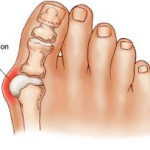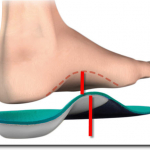Diabetes – Foot Care.
People with diabetes can develop many different foot problems. Diabetes disrupts the vascular system, affecting many areas of the body such as the eyes, kidneys, legs, and feet. Therefore, people with diabetes should pay special attention to their feet to prevent more serious complications.
Foot problems most often happen when there is nerve damage, also called diabetic neuropathy. This can cause numbness, tingling, pins and needles, or weakness in the foot. It can also cause loss of feeling in the foot, so you can injure it and not know it. Poor blood circulation in your legs and feet may also cause delayed healing and risk of infection.
How to look after your feet when you have diabetes
-
-
- Control your blood glucose level by keeping a healthy lifestyle with balanced diet and exercise.
-
-
-
- Have routine diabetic check ups with a podiatrist. Your podiatrist will perform vascular and neurological assessments and check skin/nail and muscle strength.
-
-
-
- Check your feet daily for any cuts or sores, unusual spots, swelling or skin/nail infection. If you are unable to see the bottom of your feet use a mirror or ask a family member to help.
-
-
-
- Wear closed in shoes and socks most of the time to protect your feet from injuries. Make sure shoes are comfortable with no pressure and rubbing on the skin.
- See your podiatrist if you have corns, callouses or experiencing excessive pressure on your feet to prevent pressure sores or ulcers.
-
-
-
- Apply moisturiser to your feet daily to keep skin hydrated and avoid putting cream between toes.
-
-
-
- Communicate with your GP and have routine blood tests to monitor your blood glucose level.
-
-
-
- Be active and have an exercise plan. If you are not sure what exercise are suitable speak to your doctor.
-
Following these simple everyday steps will help prevent serious complications from diabetes.


